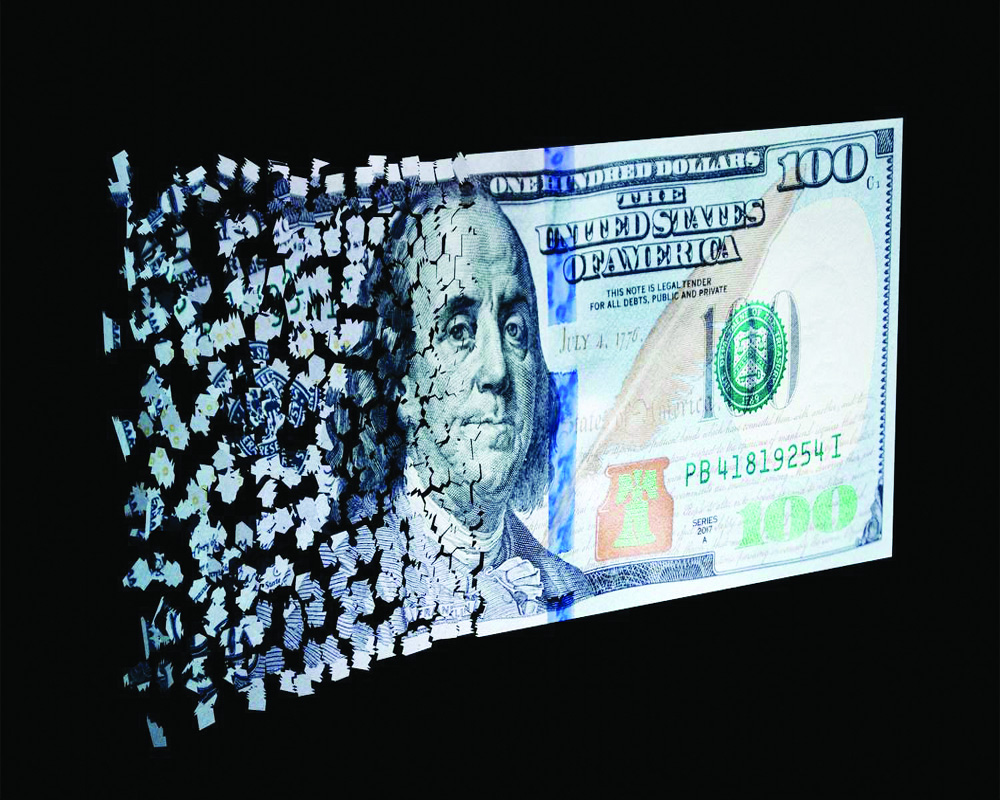The global economy stands at a crossroads as the concept of ‘de-dollarisation’ gains momentum, sparking debates about the future of international trade and finance
The global economy is currently rife with discussions surrounding a potential ‘de-dollarisation,’ which pertains to the anticipated transition away from the supremacy of the US dollar in international trade and finance.
Advocates argue that it could stabilise economies, reduce inflation, and ultimately relieve financial pressure on everyday individuals. However, is this change truly the solution to the world’s economic problems, or does it introduce a new set of challenges?
De-dollarisation refers to the reduction of dependence on the US dollar in the realms of global trade, investments, and reserves. For many years, the dollar has held its position as the leading reserve currency globally, influencing markets and moulding economic strategies across nations. Nevertheless, numerous countries have begun to challenge this reliance on the dollar. The drive towards de-dollarization arises from a combination of elements: an increasing yearning for financial independence, the unpredictability of US policies, and the necessity for a different system that is more resilient against sanctions and market instability. Several nations, particularly those within economic alliances like BRICS (Brazil, Russia, India, China, and South Africa), have put forth the concept of establishing a new shared currency to facilitate trade and lessen their dependence on the dollar.
Undoubtedly, a significant appeal of a unified currency lies in its potential to mitigate inflation. By minimising the volatility of exchange rates and reducing reliance on fluctuations in the dollar, it could offer a pathway to stabilise prices for traded goods through a singular global currency unit.
Countries that rely on importing oil or other essential items ought to engage in negotiations for fixed prices, free from the influence of market fluctuations driven by the volatility of the dollar rate. Inflation, frequently influenced by fluctuations in local currency, could, in principle, be mitigated within a cohesive framework. The reasoning is straightforward: when trade and pricing frameworks are synchronised with a single currency, fluctuations in the dollar will likely exert a diminished impact from external shocks.
Having more stable prices for essential items would alleviate the financial strain on families. A unified currency could simplify many aspects of daily life for the average person. Crossing border lines may appear quite effortless, as there will be no need for currency exchange. Global enterprises will thrive in an environment where stable financial conditions enable them to provide savings to their customers. Nevertheless, the transition to a unified currency faces several challenges. A cohesive monetary system requires exceptional coordination among countries with diverse economic priorities, growth rates, and fiscal strategies.
Creating confidence and setting up governance frameworks for the currency would present a significant challenge.
Critics contend that a unified currency could unfairly benefit more robust economies, putting smaller or developing countries at risk. Without the ability to modify their currency values, nations may find it challenging to address specific economic crises effectively. In the immediate term, this may unsettle global financial systems, leading to instability as markets adjust. Although the dollar’s strength might not be flawless, it serves as a stabilising force in a tumultuous global economy.
The ideas of de-dollarisation and the potential rise of a unified currency represent daring approaches to addressing enduring economic challenges. The outcome of lower inflation and an improved quality of life hinges on the ability of nations to collaborate effectively and create frameworks that prioritise fairness and stability. However, the journey towards this transformation is set to be long and complex. The discussions it has ignited suggest a more equitable economic future. Whether they evolve into genuine transformation is something only time will reveal—or if the world navigates towards fresh financial horizons is yet to be determine.
(The writer is a freelance writer; views are personal)
























